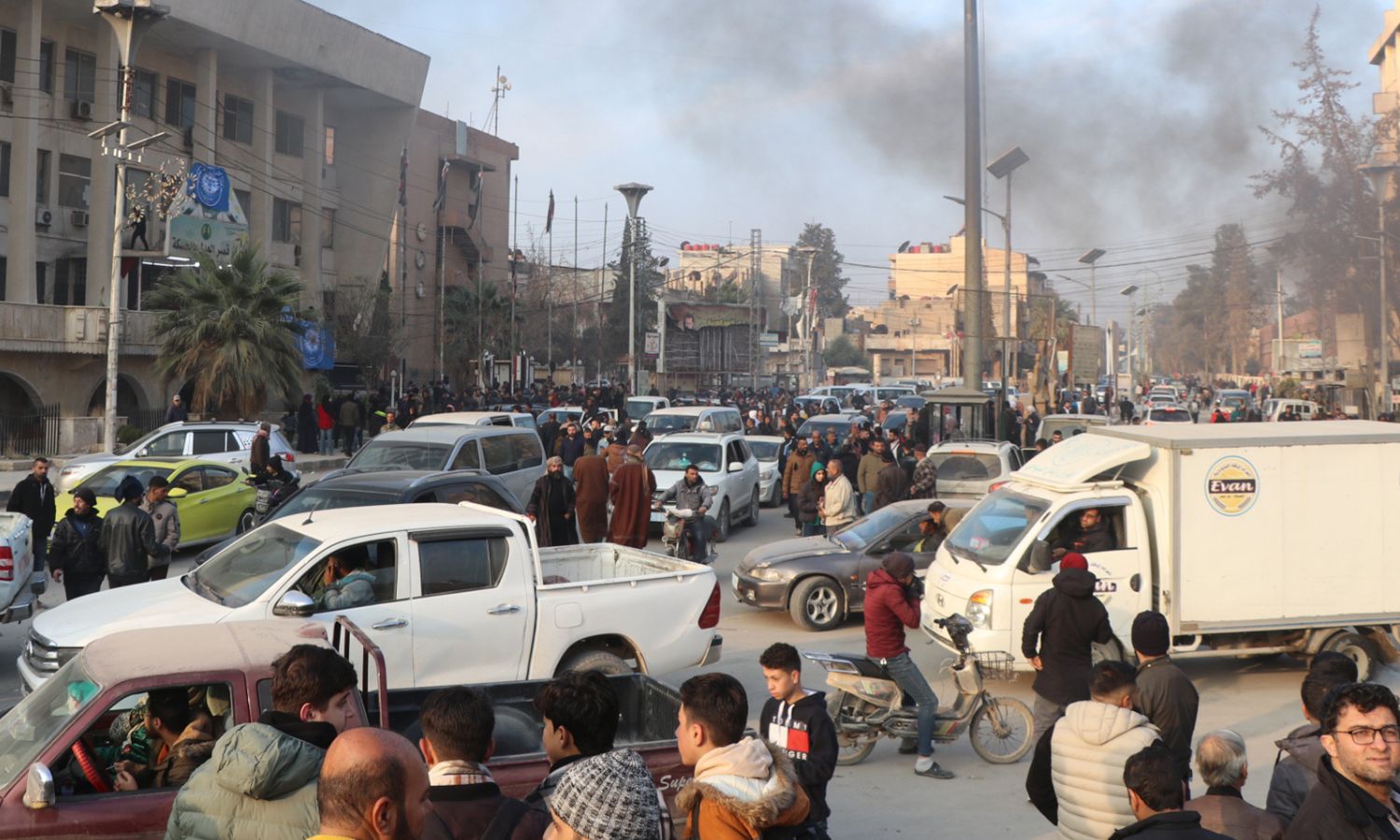



Al-Hasakah – Majd al-Salem
Residents in al-Hasakah, eastern Syria, are struggling to complete their official transactions due to the closure of government institutions, such as the Civil Status Directorate and courts, by the Syrian Democratic Forces (SDF).
This ongoing situation continues to trouble residents until this February, having begun once the SDF took control of those institutions following the fall of the previous Syrian regime and the escape of Bashar al-Assad to Moscow on December 8, 2024.
Transactions such as renewing identity cards, obtaining official documents, registering properties, and even completing legal cases have become nearly impossible, according to individuals interviewed by Enab Baladi.
The closure of the Civil Status Directorate is considered one of the most impactful actions on citizens, as noted by Enab Baladi. Without this directorate, residents cannot renew their personal IDs, obtain birth or death certificates, or complete any transaction related to civil status.
This has created problems for the residents, especially in matters requiring official documents to finalize any government transaction.
Izzat al-Hussein (40 years old), residing in Qamishli, expressed concern that this issue could persist, as he lost his personal ID a week before the battles that led to the regime’s fall.
He told Enab Baladi that he had attempted to file a police report at the Qamishli District Directorate to obtain a lost ID replacement, but the rapid developments of events hindered him from doing so.
He added that now, without an ID or an official report confirming its loss, he faces numerous problems while passing through the SDF checkpoints spread throughout the region, impeding his movement to areas beyond his city.
Attorney Hassan Mukhlaf (37 years old) from Qamishli told Enab Baladi that the closure of official courts throughout al-Hasakah has led to the stagnation of thousands of legal cases, including personal status matters such as divorce and inheritance, as well as civil and commercial cases, prompting some residents to travel to other provinces to complete their paperwork.
He mentioned that citizens needing to resolve disputes or complete legal transactions found themselves facing two options: either wait indefinite periods or resort to the courts affiliated with the Autonomous Administration of North and East Syria (AANES), which are not recognized by the Syrian government or many countries.
The attorney explained that the cessation of work in the property registration departments affiliated with the Syrian government has led to a freeze in the real estate market in the area. Individuals wishing to buy or sell properties have found themselves unable to complete their transactions due to the lack of an officially recognized body to register the properties.
This situation has created economic instability and caused stagnation in the real estate market, as well as in buying and selling vehicles registered with the interim Damascus government.
Abdul Rahman al-Aliwi (32 years old) from al-Qahtaniyah in the al-Hasakah countryside reported difficulties in selling his house, valued at approximately $30,000, to pay off a due financial debt.
He told Enab Baladi that despite reducing the price by about $6,000, he has been unable to sell due to the closure of the courts and the unwillingness of buyers to take risks at this time.
He mentioned that he was imprisoned by the Autonomous Administration for a week after a complaint was filed against him by his creditor, but he was released on bail, and he is still trying to sell his house, facing the threat of imprisonment again if he does not settle his debts.
According to information gathered by Enab Baladi from several lawyers in the area, their work is nearly halted at present, and their role is limited to drafting some contracts for buying and selling, but without being able to register them in the courts.
The Autonomous Administration has requested that lawyers return to work in the courts, but on the condition that they operate according to the Administration laws, which they rejected, pointing out that the Administration currently controls all the documents, transactions, and archives of the courts, having moved them to one of the basement levels in the courthouse.
The decision to close institutions by the Autonomous Administration has sparked a wave of criticism from local residents, who are calling for a reversal of this unannounced decision.
For the SDF, which is the military wing of the Autonomous Administration, negotiations are ongoing with Damascus to engage with the new Syrian administration, amid parties trying to create military clashes between them, according to SDF commander Mazloum Abdi, who mentioned there are arrangements to avoid such clashes.
On the other hand, the Syrian president for the transitional phase, Ahmed al-Sharaa, has stipulated three essential bases for resolving the issue: there should be no division in Syria in any form, even if it’s federal; foreign fighters causing problems for neighboring countries must leave; and that arms must be restricted to the state only.
if you think the article contain wrong information or you have additional details Send Correction